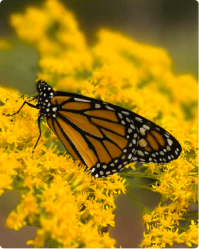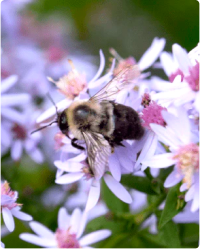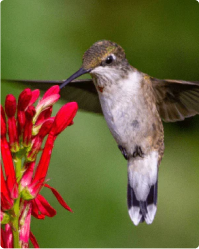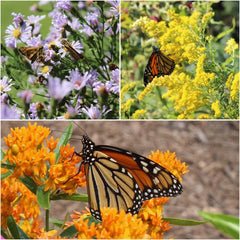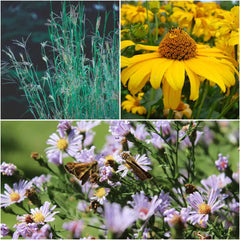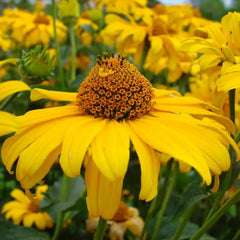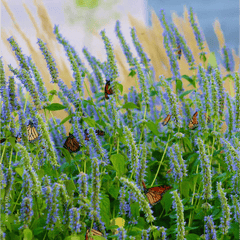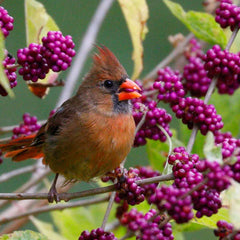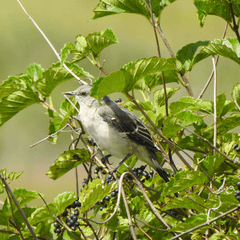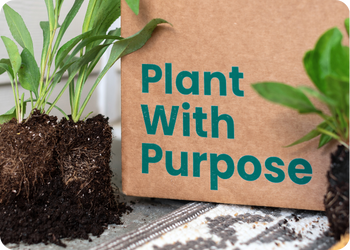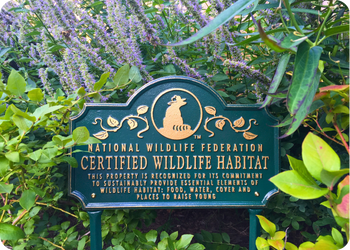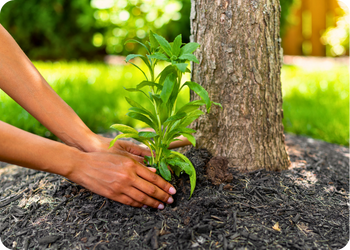- Shop All
- Plant Finder Quiz
- Collections
-
Regions
- Connecticut
- Maine
- Massachusetts
- New Hampshire
- New Jersey
- New York
- Pennsylvania
- Rhode Island
- Vermont
Northeast
- Alabama
- Arkansas
- Delaware
- District of Columbia
- Florida
- Georgia
- Kentucky
- Louisiana
- Maryland
- Mississippi
- North Carolina
- South Carolina
- Tennessee
- Virginia
- West Virginia
Southeast
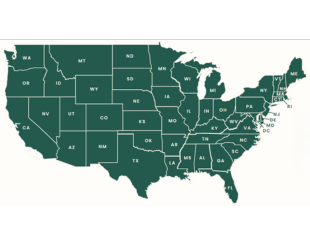
View Map
- Habitats
- Wildlife
- Our Mission
- On Sale
- New
How can we help you today?
Find answers to your questions
How can I find more info on these plants and your growing standards?
Table of Contents
We know that gardeners have many choices when it comes to shopping for native plants, and we are committed to providing the highest quality plants grown using sustainable methods. Below please find answers to some common questions about our plants and growing methods.
Pesticides
We are committed to environmentally friendly and sustainable gardening practices. We prioritize the health of both our customers and the environment, ensuring that our native plants are free from harmful chemicals, allowing you to create thriving gardens that support biodiversity and pollinators
Neonicotinoids
Neonicotinoids are a class of insecticides that are chemically similar to nicotine. While they have been widely used in agriculture, they have also been linked to several environmental and ecological concerns including causing harm to bees and other pollinators. Studies have shown that exposure to even low levels of neonicotinoids can impair bees' ability to forage, navigate, and reproduce. Absolutely NO neonicotinoids, nor similar chemicals, are used at the facilities where the Garden for Wildlife line of plants are grown. (In addition to not having our plants directly sprayed with these chemicals, we cannot risk exposure from atmospheric drift.)
Cultivars
Garden for Wildlife Native Plants are exclusively straight native plant species. This ensures our native plants have naturally occurring attributes that make them a good host or nectar and pollen providers for native wildlife. Planting straight species also promotes genetic diversity in the landscape. We do not sell cultivars or “nativars” which are developed by plant breeders from a parent native plant to have additional “retail” friendly attributes such as double blooms, varying colors and uniformity.
Deer Resistance
While no plant is 100% critter proof, many of our plants are considered deer and rabbit resistant once mature. Because the tender leaves of young plants can still be very attractive to deer and other foraging wildlife, we do recommend protecting plants until they have grown and become established by creating a barrier such as fencing or netting.
Container Gardening
Most of the plants in our flowering perennial collections can be planted in containers. We do not recommend planting our shrubs in containers. Suitable containers should be large enough to accommodate each plant's spread and roots at maturity. Overcrowding of plants in containers can lead to stress on the plant, so we generally recommend one plant per 12-24 inch container for most of our plants.
Containers that are at least 24-36 inches can be used for individual plants that spread widely or for planting multiple more compact plants together in the same pot. You can read more about our recommendations for patio or container gardening.
Native Range Determination
How do you determine the native range of plants?
Before we add any plant to our online store, our product team does months of research on the attributes, best growing conditions, and wildlife benefits of the proposed species. As part of this process, we confirm the native range of the plant using information from the Biota of North America Program (BONAP). BONAP collects, compiles, and analyzes data on the distribution and abundance of plant species across North America. They produce detailed maps and atlases that document the geographic range of each species. BONAP's reputation for accuracy, expertise, transparency, and up-to-date information makes it a trusted source for determining a plant's native range in North America. Researchers, conservationists, land managers, policymakers, and the general public rely on BONAP's data and resources to make informed decisions and advance our understanding of North American flora and biodiversity.
Visit the Garden for Wildlife Learning Center for more our scientific process for native plant selection.
Grower Location
Where are you located? Where are your growers located?
Garden for Wildlife, Inc. is based in Maryland, but our network of growers is spread across several states throughout the areas that we serve. Where your plants will be shipped from depends on a few factors. In general, plants are shipped from the closest grower as close as possible to the buyer. Because not all of our growers grow all of the species that we sell, if you have more than one item on your order, your plants may be coming from multiple growers. We are always working to expand our network of growers in order to reduce the distance that we are shipping plants.
Toxicity to Pets
Are these plants toxic to dogs?
Many plants, both native and non-native, do have some toxicity to dogs and other pets. While most native plants are only harmful if consumed in large quantities, we recommend checking with your veterinarian before planting anything if you have a pet who is prone to eating plants and will have unattended access to your garden. Another great resource for information on plant toxicity is the ASPCA’s website. You can view our recommendations for pet-friendly native plant gardens.
Updated on 30 Sep 2024
Find out what's blooming.
Sign up for updates on new releases, sales, plant care tips, and more.
